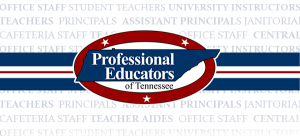In January this year, the school board for McMinn County, TN banned a graphic novel about the Holocaust. Whenever a book is banned there’s an outcry, and for good reason. I wanted to read the book and see what all the hype was about.
Maus, by Art Spiegelman, was published in two installments in 1986 and 1991. In 1992 it won a special citation Pulitzer Prize. Maus follows a young man living in New York who is writing a graphic novel about his father’s experiences as a Jew in Poland during World War 2. The story jumps back and for between the 1940s and the present day.
Over the years I have read a few graphic novels for children, but I have also read a few for adults. Graphic novels are an interesting medium for adult books because they include pictures, but they still leave a lot of room for your own imagination. I think that graphic novels by their nature are a bit choppy. For most books, I find this annoying. For the poignancy of Maus, however, I thought it was the perfect medium. You jump back and forth between brutality and familial love, atrocities and kindness, evil and good. This choppy nature is probably just like what the Jews of the 1940s would have experienced in real life. It also made it all seem more real to me.
As for the content of this book, it is very intense. Even though it’s a cartoon, it is probably one of the most explicit accounts of the Holocaust I have ever read. The author includes many grotesque details from gas chambers to infanticide by soldiers. There is one scene with some male mouse nudity. According to a New York Times article published January 27, 2022 (https://www.nytimes.com/2022/01/27/us/maus-banned-holocaust-tennessee.html ), Maus was banned from the eighth-grade curriculum for “some rough objectionable language” and nudity. When asked, Art Spiegelman, the author, defended the book and said that while it is disturbing, the holocaust itself is disturbing history.
I think many eighth graders could read this book and learn from its valuable lessons, but it does seem to me to be a book more suited toward high school.
One aspect about Maus that I thought so important is how readable this book is. I read Maus in one day. It’s fast and very engaging and even though it is intense, it was very enjoyable. I think this is so important because it makes this content readable and accessible to a wider audience. Even “non-readers” could read through this book fairly quickly and learn valuable lessons about The Holocaust, hatred, speaking out, respecting the elderly, and so much more.
I would definitely pre-read this before giving it to a child. Even middle school children, however, could get a lot out of this story if they have loving people to talk to about the intense themes.
Copies are available to try at Linebaugh Library.
Until next time, happy reading!
Shelly is a mother of four girls who loves to read, craft, cook, and travel. Follow her on instagram for more book reviews @Ms.Shelly_Booklady













